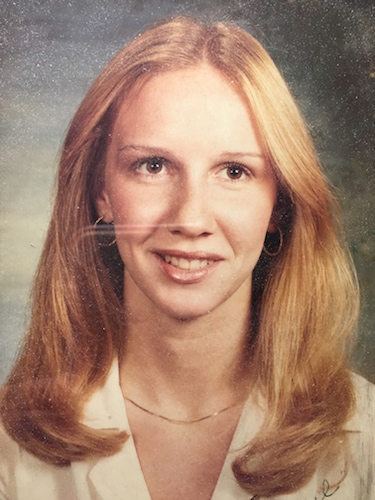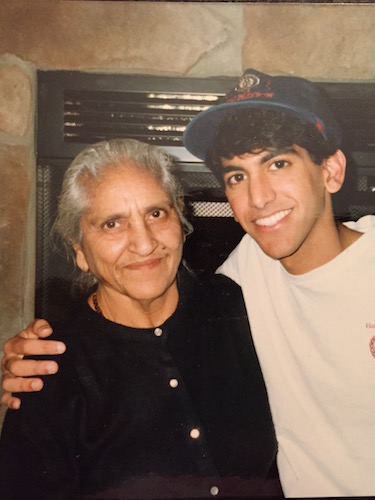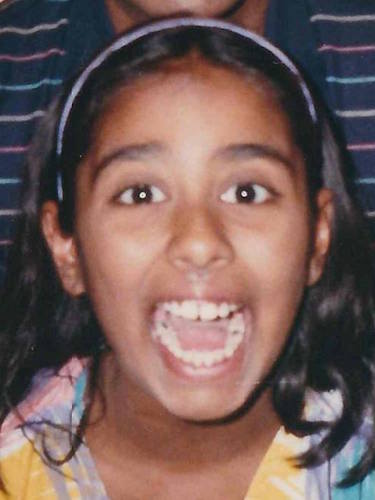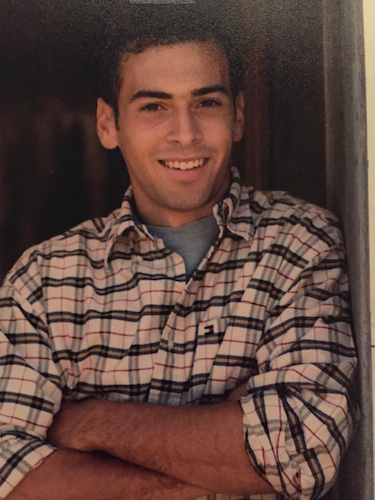With judging underway, we’re thrilled to highlight the esteemed panel of judges, who draw from diverse education and tech backgrounds.
Below, read what the judges have to say about why this Challenge matters to them, along with a flashback bonus: photos from their school days, and high school career dreams.
CHERYL CARRIER
Director, Ford Next Generation Learning
 Why is this Challenge important to you?
Why is this Challenge important to you?
The reason I want to be involved in this is because I know how important my CTE classes were in helping me build my confidence to shape my future. They were the highlight of my high school education. Everything I learned in those courses I was able to apply in my high school co-op and after-school job and my eventual career. I learned to think critically and problem-solve. I learned how to work in a team and to value diverse opinions and I began to build my brand through those experiences. Helping students get connected to their interest and goals is incredibly important to me. Ensuring that every students has equitable access to quality information and data that will help them make informed decisions and take ownership of their future is key to their success. My work for the last 14 years has demonstrated my commitment to ensuring students have the social capital, tools, resources, skills and the confidence they need to be prepared for a life they have designed for themselves with support from caring adults.
In high school, what did you want to be when you grew up?
I thought I wanted to be an engineer and I cannot tell you how bad a choice that would have been for me for so many reasons!
ANEESH CHOPRA
Co-founder, Hunch Analytics; Former U.S. CTO
 Why is this Challenge important to you?
Why is this Challenge important to you?
I believe everyone should have a fair shot to fulfill their dreams, and that students deserve the best advice on decisions about each stage of their lives, at each stage of life.
In high school, what did you want to be when you grew up?
I wanted to be a public servant 🙂
AARTI DHUPELIA
VP of Strategic Initiatives, National Louis University
 Why is this Challenge important to you?
Why is this Challenge important to you?
Success starts with dreaming big and believing that anything is possible. Early career planning helps young people set their sights high and pushes them to start thinking through the steps they need to take to achieve their dreams. We don’t do enough of this in K-12, so I’m excited to assist in efforts to make career planning more prevalent with our young people.
In high school, what did you want to be when you grew up?
Lawyer or Psychologist or first female professional baseball player!
CORY NOTESTINE
Counseling & Postsecondary Coordinator, Colorado Springs School District 11
 Why is this Challenge important to you?
Why is this Challenge important to you?
While K-12 education has increased its efforts to build children’s career knowledge and access to career opportunities, gaps still exist in helping students make the best career decisions based off a child’s strengths, interests and goals. I believe the Challenge will provide access for all students to begin the career exploration at their own pace or through a guided timeline outlined by educational professionals. Having a career tool that a child can access from any mobile device has the potential to close the career knowledge gap and increase a child’s ability to enter into education that aligns with their career interest.
In high school, what did you want to be when you grew up?
In high school, I wanted to be a Civil Engineer. In fact, I was admitted into the College of Engineering at the University of Kentucky and studied in this field for two years before changing my major to Psychology.
DONNA HARRIS
Co-founder & CEO, 1776
Why is this Challenge important to you?
The kinds of ideas presented in this Challenge are exactly what our nation’s youth need, so they can explore career options based on truly knowing themselves, where the job markets are going and insights into what it takes to make their aspirations become reality.
In high school, what did you want to be when you grew up?
Honestly, I had zero idea what I wanted to be when I was in high school. The only exposure I had to potential careers was based on what my parents did for a living. I went off to college and took classes without any vision of what I should be learning and why.

